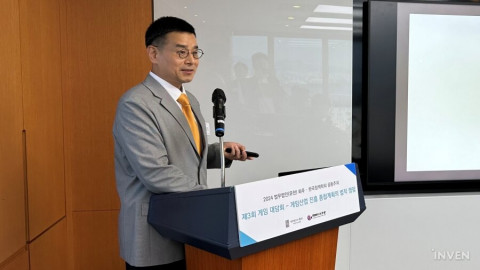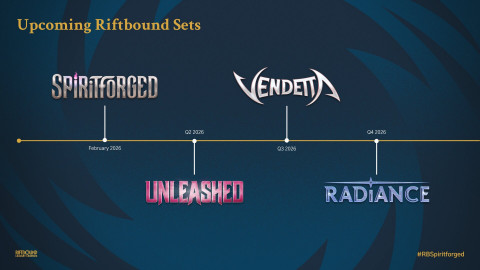Last year in November, Riot Games Korea hosted an informative conference to provide more information about the newly planned LCK Stadium. The stadium is planned to hold 450 people and is scheduled to function till 2029. This is a stadium built purely to host League of Legends in Korea. Because the plan is still in its early development stages, we could not get as much information as we wanted. The only certain fact that we know is that Riot Games will now be in charge of video production for broadcasts, and that the stadium will be ready by September 2018.

Not so long ago, one of Korea’s largest companies, CJ E&M, withdrew from the Korean eSports association. Although non-Koreans may not care or know much about CJ E&M, you will think otherwise after we shed some light on this event. CJ E&M is a founding company of OGN. OGN is the Korean game broadcasting company that has hosted the LCK for as long as the viewers remember. On top of all this, OGN has now started to invest in PUBG (PlayerUnknown’s Battlegrounds), as if it were a newly-discovered holy well.
The point here is, OGN has had a business partnership with Riot Games since the beginning. The Korean League (LCK) was hosted by OGN, and Riot Games has always been supporting OGN as they hosted the LCK. However, the two pillars that make up the LCK have recently shown some shaky movement.
In truth, there is no need to talk anymore about the relationship between OGN and Riot Games, and I have no intention of arguing about it. Since 2011, after the Korean League by the name of League of Legends Champions was opened, OGN and Riot Games have consistently been in a flux of harmony and conflict. If the opportunities allows it, we might be able to experience a historical event centered around the relationship between OGN and Riot Games.
This shows not only the magnitude and length of the relationship between OGN and Riot Games, but also the complexity within it. The important aspect is not necessarily their relationship, but their ideals for the future. However you look at it, it is clear that the movement of Riot Games is one that hints at separation of the Korean League from OGN. In addition to this, it seems as if OGN is slowly stepping out of their involvements with League of Legends.

Of course, these two entities did comment on what the future may hold for the LCK (which might even be called the LCS KR soon). Regardless, it is a future that can only be predicted, based on the actions that have been revealed. However, this is not the first time something like this has happened; not too long ago, Overwatch showed the same movements regarding its League.
That being said, it would be best to directly compare the situation with League of Legends to Overwatch. This is because before Overwatch was officially hosted by Blizzard, Overwatch League was piloted at first by another entity. League of Legends is different. Though Riot Games supported it, the management of the LCK was carried out by OGN. In other words, this means that Riot Games could not arbitrarily change the composition or rules of the competition.
The situation would differ if Riot Games took charge of the regional leagues. Korea's eSports scene has evolved into a rather particular form compared to that of other countries. Because of this, there will be a lot more change if Riot Games managed their own leagues.
In the case where Riot Games would professionally host their own Korean league, there would be a lot of upsides only in regards to the League of Legends eSports scene. First of all, there would be a dramatic decrease in issues and deviations when it comes to international tournaments such as the World Championship. In addition, many of the rights and interests of the athletes who are active in the professional scene will receive fair treatment due to the ‘International Integrated Standard’. Of course, it is understandable that Riot Games would lean towards having authority over their own game’s leagues.

However, this can not be seen as an 'unconditionally right' act in the present situation. In order to explain this, it is necessary to briefly describe the process it took to make the LCK, as mentioned above. In 2011, StarCraft, which was supported heavily by the Korean eSports market, was reaching its twilight period. The transition between Starcraft 1 and 2 seemed risky for the Korean eSports market, because Starcraft was experiencing a decline in popularity within the eSports scene. Due to the seemingly inevitable downfall of Starcraft, the members of the eSports market, including OGN, had reallocated their resources into pushing a new game at the time, League of Legends.
Even though League of Legends had not been verified as a viable game at the time, OGN, which saw a limitless potential in League, poured as much of their resources as they could afford into it. Afterwards, in partnership with Riot Games, OGN and Riot Games launched their first competition under the name of "League of Legend Champions" or as we know it today, the LCK.
As such, the Korean eSports scene had its spark rekindled and created numerous new organizations, from game broadcasters, game media, clubs, athletes, and other eSports associations. What I am implying here is that if Riot games becomes host of the league, they will not sympathize with the detriment of the other benefactors of the league. It has been almost 20 years since eSports has gotten to this state in Korea. Within that period, it was the fans that established and expanded the culture and endless stream of memes.

Creating a functional eSports environment is not simply about the popularity of the game. An eSports scene is reflective of the relationship of the players, the teams, the issues that arise in the community, the rivalry, and the culture of the fans watching, all mixed together. If Riot Games truly intends to make the LCK into the LCS KR, they should carefully and thoroughly consider the adverse effects this change may have on the community. Fans may seem like a simple and same-minded crowd of people on the surface, but they are a collection of unique and passionate individuals. It may be difficult to rightly predict how this decision will the people who are essentially the lifeblood of the eSports scene.
To be fair, nothing is set in stone just yet. Riot Games and OGN has not yet announced in detail what their plans are for the LCK in the future; only those deeply involved are capable of such speculation. However, the possibility of Riot Games taking over as host of the LCK seems to be a very plausible outcome.
In retrospect, Riot Games seems to have substantial reason to make the LCK into the LCS KR. However, it's questionable whether it will bring about positive changes in the Korean eSports scene and League of Legends pro scene from a broader perspective. If Riot Games is preparing for such action, we can stop beating around the bush, but if Riot Games truly intends to gain authority over the LCK and maintain it all the way to 2029, they need to acknowledge that more definite preparations will be needed.
Sort by:
Comments :0







